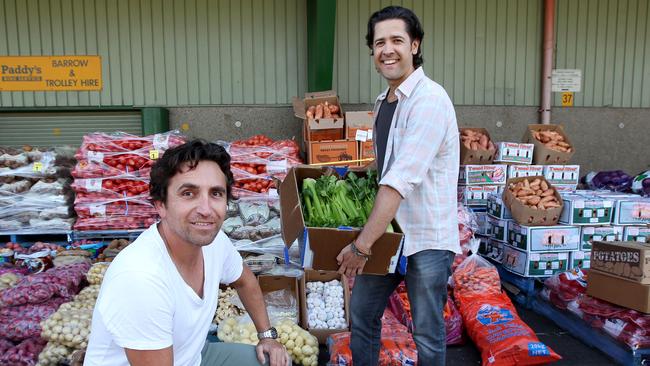Aged and disability care sector: men who care are on the rise
The aged and disability care sector is no longer seen as mainly a female domain.

Once considered “pink-collar” jobs because of the high percentage of female workers, the aged and disability care sector is attracting more men.
This is more so now that the National Disability Insurance Scheme increasingly allows people to choose services that suit their personal needs.
While the sector has traditionally relied heavily on women — with only about 20 per cent being male staff — Better Caring founder Peter Scutt says since the NDIS arrived more than half the people searching for services have done so based primarily on the provider’s gender.
Scutt attributes this to younger people wanting a carer they can relate to rather than motherly figures — who have traditionally taken on caring roles — and many seek male role models.
“For men it was never seen as a valued role and it was typically left to women to do these caring roles, and it’s important for people to find the right care worker,” Scutt says. “The workforce was built on a model of providing care and support but the service option was limited. We’re giving NDIS participants purchasing power and they’re going to demand a male.
“A 17-year-old doesn’t want care from a woman who reminds him of his mum, he might want someone he shares interests with.”
Better Caring is an online carers marketplace that allows people who have had their references checked, qualifications assured and police checks undertaken to offer disability services.
The site connects providers and clients with self-directed care funding, for services from housekeeping to grocery shopping, social activities, personal care and domestic assistance.
Scutt says self-managed care allows people to pay for services to “live a life of their choosing”.
By being able to manage their budgets, Scutt says people are choosing services to improve their quality of life. That could mean learning golf or having art lessons.
He says this has seen more workers enter the market, including young men, who specialise in providing social services or activities that do not need TAFE qualifications, such as personal grocery shopping, for people with low-level needs. “These models allow them to be able to connect with people without working for a big provider.”
Flinders University associate professor Debra King, a sociologist, says the number of men in disability and aged care is increasing. The latest National Aged Care Workforce Census shows that since 2012 male workers have increased from 10 to 13 per cent.
King says men rarely entered the caring workforce from school, and most found jobs later in life after a job change, interstate move, sometimes after caring for a child with a disability or a sick partner who had died.
“Quite often they were able to carve out a niche in aged care,” King says. “They would often have men they were looking after or looked after people with behavioural difficulties. Some clients can be quite violent. They were perceived as having more authority if they had a patient who was difficult and needed authority.”
King says concern about being wrongly blamed for sexual abuse, or that women did not want men for their personal care, often put them off. But she says caring needs to change from the perception of being a women’s profession, because more men were involved with caring duties at home and in society. “It’s challenging these norms and showing a whole range of people that doing care work is possible and needed — 30 per cent of the client group is men so you’d think there was a need for men as well,” she says.
***
TO MARKET, TO MARKET, TO HELP BUY SOME BETTER LIVES
Support worker John De Giusti knows young men with a disability often need a male role model, particularly if their mothers are their primary carers and their fathers work long hours to make ends meet.
“Disability care workers are predominantly female,” De Giusti says.
“We see a lot of divorce rates of families with children with a disability, we see there is a lack of male role models.”
De Giusti has worked in the disability sector for 20 years, after realising his psychology degree would leave him sitting in an office feeling unfulfilled.
He has worked in group-home disability support and has held roles including taking young people with intellectual disabilities away for weekends.
“We do activities, we go to national parks and go bushwalking, we do active stuff,” he says. “People used to say let’s go away for the day and they’d go to coffee shops, and that’s boring.”
De Giusti travels to Fiji in July and August each year to facilitate travel for families with disabled children, allowing parents to have a break and ensuring their children have an adventurous trip as well.
“It’s true holiday respite. The parents can have a holiday and know their kids are looked after and not far away,” he says.
“People say: ‘Oh my god, I didn’t know this could happen.’ ”
De Giusti is part of a new breed of carer taking advantage of the National Disability Insurance Scheme, offering services to clients to improve social lives. He runs a microbusiness program, where he takes a group of eight people with intellectual disabilities, and they operate a fruit delivery service at Paddy’s Markets in Sydney. With many people unable to hold down a job because of a lack of support, De Giusti’s program allows them to use their smarts to work in a supported social environment.
“When I hear parents say their son was non-verbal and after a few months with me he’s come out of his shell, he’s communicating, he’s looking after himself and he’s got something to look forward to, that’s brilliant.”


